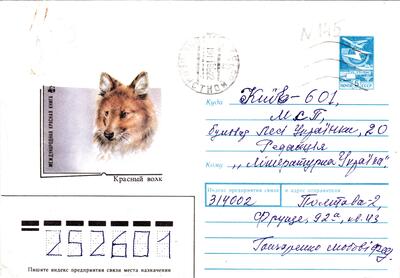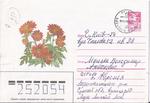Letter sent from: Poltava oblast
Letter describes events in 1932-1933 in: Village of Martynivka, Chutovo raion, Kharkiv oblast and Poltava
Current location name: Village of Martynivka (no longer exists), Chutovo raion, Poltava Oblast and Poltava
Liubov Honcharenko was 10 at the time of the famine. Her paternal grandfather was a middle peasant. The father lived in a hamlet with his parents and they had horses. He perished somewhere in the Rybinsk Camp. [Was likely dekurkulized in 1931].
Honcharenko lived with her mother and grandfather in Martynivka. She mentions an episode when a man from a search brigade showed kindness and did not take away a small bag of barley hidden by her grandfather. They were not accepted to the collective farm, and so they moved to Poltava, where they lived with her mother’s sister. There, her mother worked in a dairy plant.
Survival strategies in Poltava included food substitutes, like shulyky or crackers made of horse feed. Her
mother’s boss let employees eat and take food to their kids.
She describes signs of famine in the city: dead bodies on side streets, a cart collecting dead bodies, people
with liquid oozing from cracked skin on their legs, soup cooked and sold at farmers’ markets. She also
mentions anecdotal accounts of cannibalism: a neighbor’s daughter went to visit a friend and was killed for food.
Honcharenko wants vengeance against the perpetrators and supports the idea of a memorial day for victims of the famine. She responded to a call for submissions in Literaturna Ukraina.
Ukrainian transcription available.



